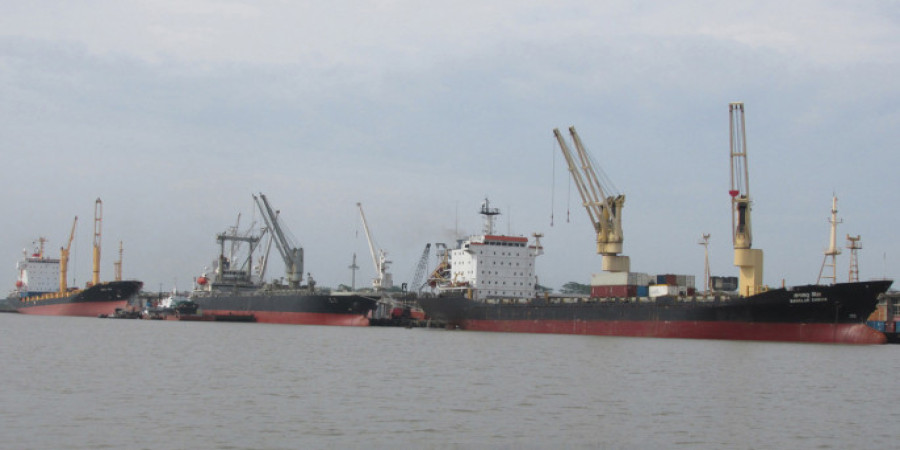
ছবি: Photo: Collected
The government’s attempts to regulate the storage and transportation of essential goods via lighter vessels in deep-sea anchorages have repeatedly hit legal roadblocks, allowing syndicates to manipulate market prices. These syndicates, comprising unscrupulous traders and lighter ship owners, exploit the system by delaying the unloading of goods from mother vessels to lighter ships, creating artificial shortages and inflating prices.
Despite introducing policies in 2013 and 2021 to streamline the process and impose time limits for unloading, the government’s efforts have been thwarted by legal challenges from lighter ship owners and importers. The latest policy, introduced in August 2023, mandates that lighter vessels must unload goods within two to seven days after receiving them from mother vessels. However, this too has been challenged in court, leaving the market vulnerable to manipulation.
How the Syndicate Operates:
Each year, over 10 million tons of goods are transported from mother vessels anchored at Chattogram Port to inland destinations via 1,400 lighter vessels. Syndicates often keep these vessels idle at sea for extended periods, sometimes up to 45 days, to create artificial shortages. This practice peaks during Ramadan, when demand for essential goods rises.
Legal Battles:
The government’s 2021 gazette, which made compliance with the policy mandatory, was suspended by the High Court following petitions from lighter ship owners and importers. Although the government appealed, the Appellate Division upheld the suspension, stalling implementation. In October 2023, the interim government reintroduced the policy, but it faced immediate legal challenges.
In December 2023, the High Court again suspended the policy and issued a rule questioning its validity. The government appealed, and in March 2024, the Appellate Division upheld the Chamber Judge’s order to stay the High Court’s suspension, allowing the policy to remain in effect temporarily.
Arguments Against the Policy:
Lighter ship owners argue that the policy favors a small syndicate and stifles competition. They claim the coordination cell, responsible for overseeing the process, imposes additional fees and creates inefficiencies. However, the government maintains that the policy aims to ensure market stability, prevent monopolies, and streamline the supply chain.
Coordination Cell’s Role:
The Bangladesh Water Transport Coordination Cell (BWTCC) monitors lighter vessel operations, ensuring timely unloading and transportation of goods. Since the policy’s reintroduction, the number of idle lighter vessels has decreased significantly, from 876 in January to a more manageable figure.
Future Steps:
Under the new policy, lighter ship owners’ associations will operate under the BWTCC’s supervision. A 10-member monitoring committee, led by the Director General of the Department of Shipping, will oversee the process. The policy also allows factories and companies with their own lighter vessels to transport goods under specific conditions.
As the legal battle continues, the effectiveness of the policy hinges on the court’s final decision, leaving the market’s stability and consumers’ interests in a precarious balance.
repoter






